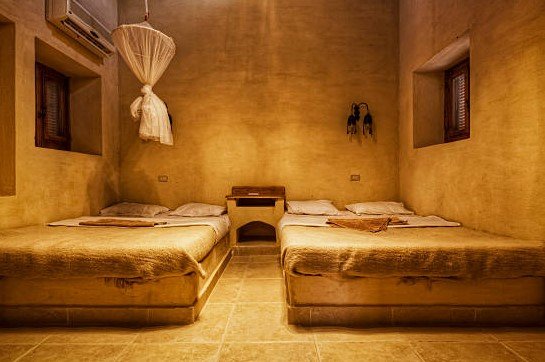Egypt’s government has approved a six month extension for its EGP 50 billion hotel financing initiative, worth about $1.05 billion, to help build more hotel rooms and handle rising tourist numbers. This move, announced by Finance Minister Ahmed Kouchouk and Tourism Minister Sherif Fathy, starts from October 20, 2025, and aims to support the country’s goal of welcoming more visitors each year.
Details of the Extension
The extension pushes the deadline for companies to apply and get bank approvals from October 20, 2025, to April 20, 2026. Officials say this responds to strong interest from investors who want to finish current projects and start new ones. The government will cover the difference in interest rates, making loans cheaper for businesses.
This initiative first launched to add hotel capacity in key areas. It focuses on places like Luxor, Aswan, Greater Cairo, the Red Sea, and South Sinai, where tourism drives local economies. By extending it, Egypt hopes to create jobs and bring in more foreign money through increased visitor spending.

Experts point out that such financial support comes at a good time. Tourism revenues jumped 22 percent in the first seven months of 2025, reaching $9.6 billion. This growth follows a 19.3 percent rise in tourist arrivals during the last quarter of 2024.
Why Egypt Needs More Hotel Rooms
Egypt’s tourism sector has bounced back strong after global challenges. In the first nine months of 2025, the country hosted 15 million tourists, up 21 percent from the year before. Officials target 18 million by the end of the year, with projections climbing to 17.76 million visitors for all of 2025 according to recent forecasts.
Hotel occupancy rates tell the story. Many areas report 80 percent full rooms, especially during peak seasons. New projects, like the Grand Egyptian Museum’s opening, draw crowds and strain existing facilities. Without more rooms, Egypt risks turning away potential guests.
The government plans to double hotel capacity to match arrival goals. Recent data shows over 4,000 new rooms opened in early 2024, with 25,000 more expected by year’s end. This push ties into broader efforts, including infrastructure upgrades and global marketing campaigns.
- Key regions for new hotels: Luxor and Aswan for cultural sites, Red Sea for beaches, and South Sinai for resorts.
- Expected benefits: More jobs in hospitality, support for local suppliers, and higher foreign exchange earnings.
Impact on Economy and Jobs
Tourism plays a big role in Egypt’s economy. It supports millions of jobs and links to industries like food, transport, and crafts. The extended initiative could add thousands of positions as new hotels open.
Logical reasoning suggests this will help stabilize the currency. More tourists mean more dollars and euros flowing in, reducing pressure on reserves. In the first half of 2025, Egypt saw 8.7 million visitors, a 24 percent increase, boosting revenues and confidence.
Compare this to past years. In 2021, officials added 8,500 new rooms, and forecasts predicted $25 billion in tourism income by mid 2020s. Today’s extension builds on that momentum, especially with events like new museum launches drawing global attention.
A recent report highlights training programs for hospitality workers. Partnerships with international groups aim to improve service quality, making Egypt more appealing to high spending travelers.
Challenges and Future Outlook
No plan is without hurdles. Geopolitical tensions in the region can affect travel. Rising costs for construction materials might slow projects. Yet, Egypt’s diverse attractions, from pyramids to beaches, keep it competitive.
Forecasts remain positive. By 2026, tourist numbers could hit 18.56 million. The government commits to balanced policies that encourage private investment. This extension shows a proactive approach to growth.
| Year | Tourist Arrivals (Millions) | Revenue Growth (%) |
|---|---|---|
| 2024 (Q4) | Not applicable | 19.3 |
| 2025 (First 9 Months) | 15 | 21 |
| 2025 (Projected Full Year) | 18 | 22 (First 7 Months) |
| 2026 (Forecast) | 18.56 | To be determined |
Global Context and Comparisons
Egypt’s efforts mirror trends in other tourism heavy nations. Countries like Turkey and Greece also invest in hotels to capture post pandemic travel booms. Egypt stands out with its unique history and ongoing developments.
Recent events, such as the 2025 tourism training initiative, enhance visitor experiences. This ties into worldwide recovery, where global travel spending nears pre 2020 levels.
Analysts praise Egypt’s strategy. By focusing on capacity and marketing, the country positions itself as a top Middle East destination. This could lead to sustained growth if external factors stay stable.
Share your thoughts on Egypt’s tourism plans in the comments below, and spread the word by sharing this article with friends interested in travel news.
